☀️ Good morning. Happy Thursday! Today is November, 03, 2022 and your weekly health update has arrived.
✍️ Quote of the Day: “Take care of your body. It’s the only place you have to live.” – Jim Rohn
❤️ Brought To You By: Collagen: The loss of collagen affects the way you look and feel. The first signs may be subtle. However, the earlier you start, the more you can do to replenish the collagen in your body to see positive results.
Digestion
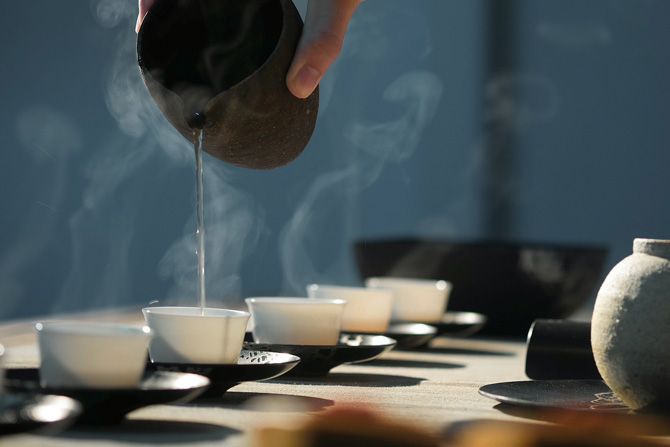
9 Teas That Can Improve Digestion
People have been drinking tea to help treat digestive issues and other illnesses for thousands of years.
Several herbal teas have been shown to help with nausea, constipation, indigestion, and more. Fortunately, most of them are widely available and easy to make.
Here are 9 teas that can improve your digestion.
1 – Peppermint
2 – Ginger
3 – Gentian Root
4 – Fennel
5 – Angelica Root
6 – Dandelion
7 – Senna
8 – Marshmallow Root
9 – Black Tea
To read the full article, click here.
Energy
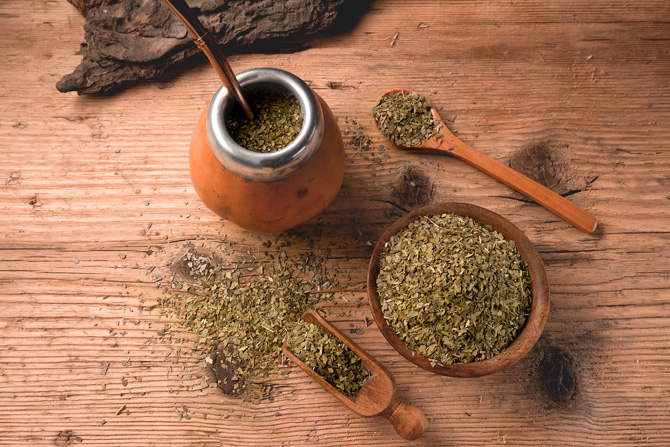
Feeling Fatigued? You Might Give Yerba Mate A Try…
Yerba mate is an herbal tea made from the leaves and twigs of the mate plant that’s popular in Argentina, Brazil, Uruguay, and other South American countries where the plant occurs natively. Like coffee and other teas, yerba mate stimulates the nervous system and is most commonly consumed as an energy booster.
Yerba mate has been enjoyed for centuries by people across South America. It is traditionally enjoyed hot with a filtered straw in a hollow gourd, while other people prefer drinking it over ice. The plant is a member of the holly family and produces a strong, bitter drink similar to green tea. Yerba mate is known as a natural remedy for:
Fatigue
Depression
Weight management
Chronic headaches
Yerba mate is a rich source of antioxidants due to the presence of substances such as xanthines, caffeoyl derivatives, and saponins. However, some of the things that make yerba mate so potent, such as its high caffeine content, can also create health problems for some people.
To read the full article and learn about the potential risks, click here.
Heart Health

How To Tweak To Your Diet To Help Prevent Heart Disease
A good first step is to limit your unhealthy fats.
Limiting how much saturated and trans fats you eat is an important step to reduce your blood cholesterol and lower your risk of coronary artery disease. A high blood cholesterol level can lead to a buildup of plaques in the arteries, called atherosclerosis, which can increase the risk of heart attack and stroke.
The American Heart Association offers these guidelines for how much fat to include in a heart-healthy diet:
Saturated fat: Less than 6% of total daily calories.* If you’re eating 2,000 calories a day, that’s about 11 to 13 grams.
Trans fat: Avoid
Here are X simple ways to cut back on saturated and trans fats:
- Trim fat off meat or choose lean meats with less than 10% fat.
- Use less butter, margarine and shortening when cooking and serving.
- Use low-fat substitutions when possible for a heart-healthy diet. For example, top a baked potato with low-sodium salsa or low-fat yogurt rather than butter, or use sliced whole fruit or low-sugar fruit spread on toast instead of margarine.
Check the food labels of cookies, cakes, frostings, crackers and chips. Not only are these foods low in nutritional value, some — even those labeled reduced fat — may contain trans fats. Trans fats are no longer allowed to be added to foods, but older products may still contain them. Trans fats may be listed as partially hydrogenated oil on the ingredient label.
To read the full article, click here.
Immune System
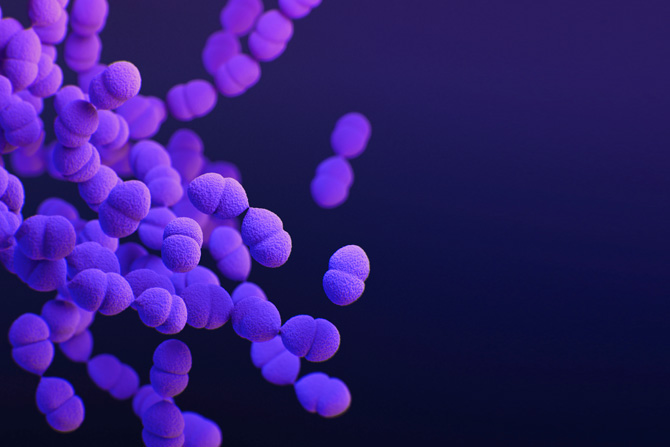
How Does Your Immune System Work?
Your immune system’s ability to defend against foreign invaders is referred to as immunity. This capacity for self-defense is both inherited and learned.
The immune system knowledge you are born with is called innate immunity.
A portion of your immune system cells come preprogrammed with a set of instructions of how to respond to potential threats.
Adaptive immunity is the immune system knowledge you gain throughout your life. Each encounter with a new invader presents an opportunity for your adaptive immune system cells to learn—to build their defenses in a specific manner so they can deal with future threats more efficiently.
Innate Immunity
- Consists of physical barriers (e.g., skin and hair), chemical barriers (e.g., mucus and stomach acid), commensal (good) bacteria, and immune system cells (e.g., neutrophils, macrophages, dendritic cells, and NK cells)
- Is a semi-specific and widely distributed form of immunity (provides a systemic response to any incoming invader)
- Provides a first line of defense against invaders
- Helps activate an adaptive immune system response
Adaptive Immunity
- Consists of immune system cells, including B cells and T cells
- Is a highly specific form of immunity (provides a response to particular invaders)
- Provides immunological memory—the ability to respond more rapidly and effectively to invaders that have been encountered previously
- Can be acquired naturally or clinically
- Can be classified as active or passive
To read the full article, click here.
Joint Pain
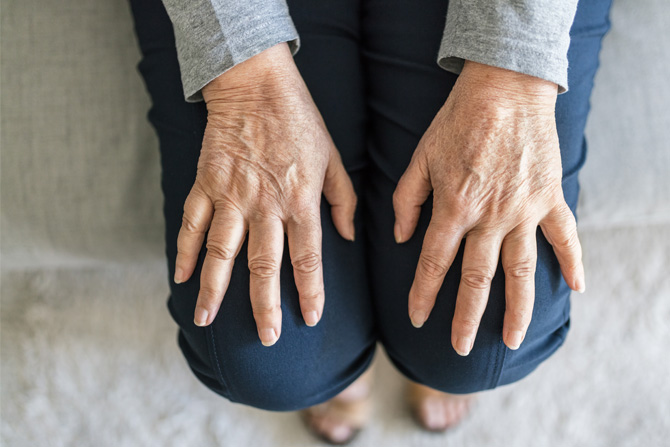
5 Things To Do If You’re Living With Osteoarthritis
It can be difficult to cope with osteoarthritis symptoms that interfere with usual activities of daily living. The best way to cope with physical limitations is to know you are doing everything you can do in terms of pain relief and improving physical function. There are actions that can improve your ability to cope—and to feel better both physically and emotionally.
Protect your joints: Do all you can to avoid excess stress and strain on your joints. Consider wearing a support or orthotic. Use assistive devices and adaptive equipment when needed.
Keep moving: Don’t fall into the sedentary trap. Regular exercise and physical activity will enhance your ability to cope with pain and limitations. Daily range of motion exercises and strengthening exercises should be included in your routine.
Eat well: Take a daily multivitamin for better health overall. Including antioxidants in your diet has been touted as being beneficial for osteoarthritis patients.
Lose weight: Maintaining a healthy weight will lessen stress on your joints.
Sleep also helps!
Getting better sleep will reduce your fatigue, while poor sleep can obviously worsen it (along with your pain). Make your bedroom a good sleep environment and practice good habits that will help you get a full night’s rest. While it’s very important to stay active, it’s equally important to get enough rest.
To read the full article, click here.
Skincare
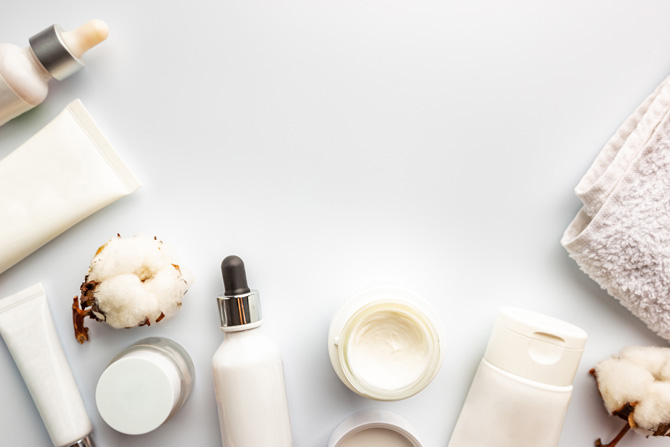
8 Natural Beauty Tips for Your Skin
Time in the sun, smoking, diet, and heredity all have effects that become evident on your skin as you get older. Stress, gravity, and obesity also affect the way skin looks. And as you age, your skin doesn’t produce new cells as quickly as it used to. So it gradually becomes less elastic and prone to dryness.
Here’s a few simple steps you can start taking…
1 – If you smoke, stop. Research shows that smoking prematurely ages your skin.
2 – Just say no to sunbathing and tanning salons. Stay out of the sun between 10 a.m. and 2 p.m. The sun’s rays are the strongest then. If you must be outside, wear a protective hat, long-sleeved shirt, pants, and sunglasses. Freckles, age spots, and blotchy complexions are linked to sun exposure.
3 – Wear sunscreen religiously. Use products with at least 7% of zinc oxide and a SPF 30 or higher — with both UVB and UVA protection every day. Reapply your sunscreen to exposed skin every two hours when you are outside. Sun damage can result in such changes as fine wrinkles and an uneven skin tone.
4 – Check your skin often for skin cancer. If there are changes that worry you, call your doctor right away. Older, fair-skinned people are at high risk and must have a yearly check.
5 – Soothe dry skin. Use a humidifier. Also use moisturizing soaps and lotions. See your doctor if you still have problems.
6 – Eat right and hydrate. Good nutrition helps the body repair skin. Drinking lots of water helps hydrate skin from the inside out.
7 – Try anti-aging products. If you’re over age 50, over-the-counter creams and lotions can help enhance your natural beauty by rejuvenating your skin. Pentapeptides (a chemical compound in many new products) may help prompt skin cells to produce more collagen, which is the support structure that gives skin a firmer look. Prescription treatments and retinoid creams are also options.
8 – Know about skin treatments. Injections of Botox or Dysport can ease wrinkles in the upper third of your face. Chemical peels can remove fine lines and freckles and smoothen skin, especially around the eyes and mouth. Wrinkle fillers can plump up your skin and erase lines. Microdermabrasion and microneedling erase ultrafine lines, rejuvenates your complexion, and improves skin tone and color. Laser resurfacing can improve sun-damaged skin, scars, wrinkles, and other facial problems.
To read the full article, click here.
I Want To Improve Skin Moisture & Elasticity
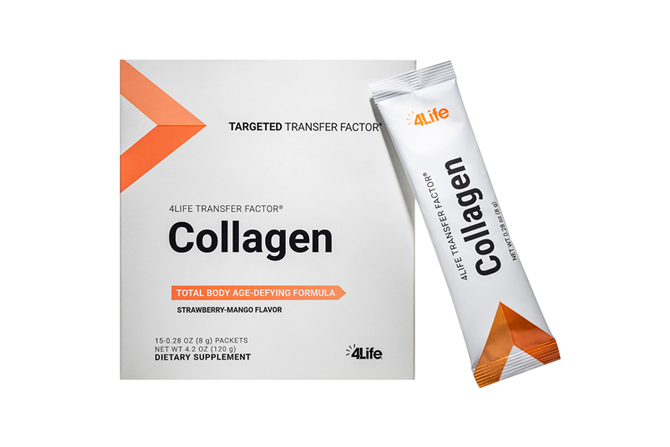
Young again, and not just at heart . . .
4Life Transfer Factor Collagen is a total body age-defying powder supplement that includes five types of collagen to help support healthy joints, muscles, hair, and skin.
It features 4Life Transfer Factor® to educate and enhance the immune system, plus Vitamins A, C, and E, biotin, and antioxidants. It also includes an Age-Defying Plant Complex to improve skin moisture, tone, and elasticity while reducing the appearance of fine lines and wrinkles.
Independent studies show that mixing just one delicious strawberry-mango powder packet with 8 oz. of your favorite beverage daily can give you visible results in as little as 42 days! Take one packet per day.
To Your Health,
TheTinySpoonCo Content Team
Our Mission: To help 1M+ adults remain strong, healthy, active, and independent as they age.
.
.
.
TheTinySpoonCo.com is reader-supported. When you buy through links on our site, we may earn an ‘thank you’ commission. This helps us continue to run the email newsletter and provide you with healthy headlines, news, stories, and fascinating health information.
Disclaimer: TheTinySpoonCo does not provide medical advice, diagnosis or treatment. See additional information.


